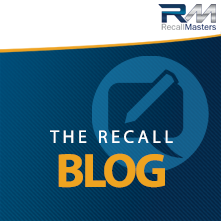What’s the Right Tone for a Recall Campaign?
To reach customers successfully and keep them engaged during a recall, dealerships need to be both urgent and communicative. Since a recall is a prime opportunity to grow consumer brand loyalty, messages should be helpful and empathetic while also arriving urgently to address the problem quickly. It best suits dealers to have an overarching strategy that takes several months of planning into account.
One way to prepare for a sustained recall period is to maintain realistic response expectations. Recall Masters President, Chris Miller, estimates that response rates will average at five percent for an effort that plays out over months, often for reasons outside of a manufacturer or dealer’s control, like customer fatigue.
Urgency may matter even moreso given recent trends in the way recalls are issued. Auto Remarketing recently quoted analyst Michelle Krebs on the way manufacturers are reacting more quickly to vehicle issues. In addition to taking action, this helps these companies prepare for possible attention from the National Highway Traffic Safety Administration by launching voluntary recalls themselves.
Krebs specifically discussed this trend in relation to Tesla’s recent recall of every Model S sedan. Although there has only been one report of seat belt assembly issues in these vehicles, Tesla’s wide-reaching action could send a message to owners all on its own.
“Tesla has a very personal relationship with its shoppers, indeed, as it can be because of its low sales volume and the exclusive nature of its expensive product,” she said. “Clearly, Tesla wants to nip this in the bud, and it wants to demonstrate it can handle a product quality problem within its current direct-to-consumer business model.”
Working with professionals can help dealerships set up more effective recall communications that lead to better owner relationships.

